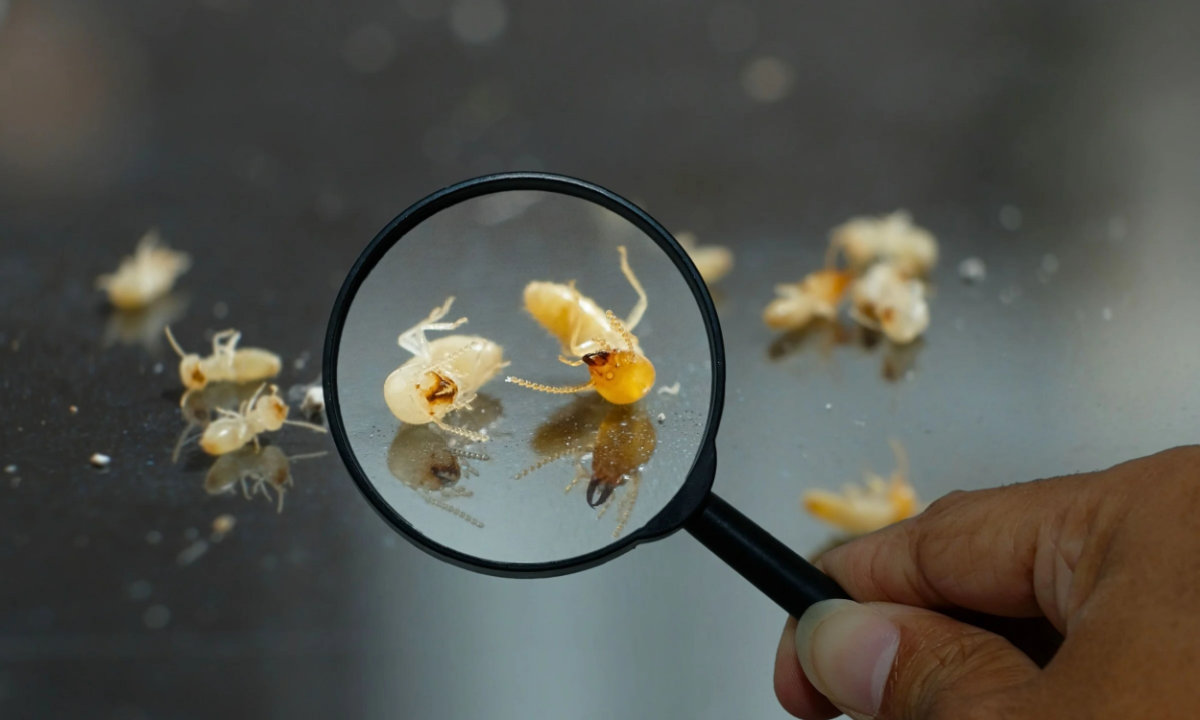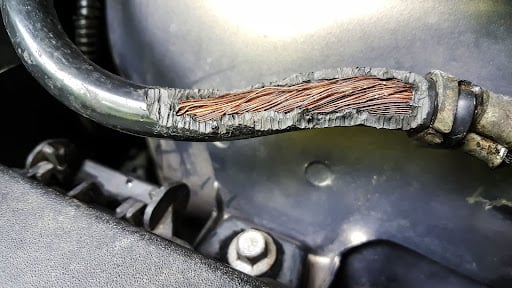Tri-state area residents are all too familiar with the seasonal battle against rodents seeking shelter during winter.
As the outdoor temperature drops, rodents in New Jersey, such as mice and rats, often seek refuge in warm and hidden spaces like your basement and attic.
While getting rid of the occasional rodent in your basement may be easy, what about if they climb into hard-to-reach places, such as your walls?
This article will explore the signs of a rodent infestation, how to combat it, and how to eliminate rodents in your walls and attics.Request a Free, No-Obligation Quote
Request a Free, No-Obligation Quote
Signs of a Rodent Infestation
Most people quickly recognize the noises that rodents tend to make—especially the ones that keep you awake at night—but plenty of other signs of a rodent infestation may exist within your home.
Remember, rodents are adept at staying out of sight, so being aware of the more subtle signs of their presence is critical.
Here are the most popular signs that can alert you to a rodent infestation, enabling you to address the issue before it escalates.
- Scratching Sounds: Particularly at night when rodents are active.
- Droppings: Small and dark, found along walls or near food sources.
- Gnaw Marks: On food packaging, furniture, or wires around the house.
- Footprints or Tail Marks: In dusty areas, especially in little-used parts of the home like your attic.
- Unusual Pet Behavior: Like barking at a wall or being fixated on a particular area.
- Nesting Materials: Shredded paper, fabric, or dried plant matter.
- Stale Smells: Indicating rodent urine or nesting areas.
- Rub Marks: Greasy marks left by rodents along walls or baseboards.
- Holes in Walls or Floors: Entry points for rodents.
- Disturbed Insulation: In attics or walls.
- Urine Pools or Trails: Rodents have weak bladders and often leave trails.
If you notice one or more of these indicators, it is essential to act swiftly. Rodents reproduce rapidly; therefore, a small problem can quickly become a large infestation.
Where Do Rodents Tend to Hide?
Like many pests, rodents are clever and can often rummage through your home unseen for many days or weeks without alerting you. The most common places to look for rodents include walls and attics. However, some additional places you may search for rodents include:
- Basements: Especially in cluttered areas or near warmth-emitting appliances.
- Underneath Kitchen Cabinets: Large hiding spaces with plentiful good access.
- Behind Appliances: Like refrigerators and stoves, due to warmth and possible crumbs.
- In Garages: Look amid clutter and storage boxes.
- Near Water Heaters: Heat source with an excellent hiding place.
- Inside Chimneys: This mostly only occurs in unused ones.
While many of these hiding spaces can be eliminated with simple traps and cleaning, walls, and attics require different solutions due to their inaccessibility.Request a Free, No-Obligation Quote
Request a Free, No-Obligation Quote
How to Get Rid of Rodents in Walls and Attics
1. Perform an Inspection: Begin with a detailed inspection of your home. Look for signs of rodent activity, such as droppings, gnaw marks, and nests. Focus on less frequented areas like basements, attics, and utility rooms. Using a flashlight, inspect dark corners, behind appliances, and inside cabinets. Don’t overlook small spaces–mice can enter through openings as small as a quarter inch.
2. Seal Any Gaps and Cracks: After identifying potential entry points, it’s crucial to seal them with materials that rodents cannot chew through. Use steel wool, metal flashing, or heavy-duty caulk to close these gaps. Check the areas around doors, windows, and especially where utility pipes and cables enter the house. Remember, preventing access is key to long-term rodent control.
3. Eliminate Food and Water Sources: Rodents are attracted to areas with readily available food and water. Store all food in airtight containers and avoid leaving pet food out overnight. Regularly dispose of garbage and keep the bins sealed. Address any leaky pipes or faucets promptly, as even a small drip can provide a water source for rodents.
Note on Insulation: Examine your home’s insulation, both in the attic and within the walls. Rodents often use shredded insulation material for nesting. Repair or replace any damaged insulation, and consider adding rodent-proof insulation materials to deter nesting.
4. Use Mouse Traps: Trapping is an effective form of mouse prevention to control growing populations. Use a variety of traps, like snap traps, glue traps, and live catch traps, and place them in areas of known activity. Bait the traps with attractive foods such as peanut butter, chocolate, or fruits. Check the traps regularly and dispose of any captured rodents following local regulations.
5. Hire an Exterminator: In cases of severe infestations, professional intervention is often necessary. Pest control experts can assess the extent of the problem and deploy advanced methods like bait stations and structural modifications to ensure complete eradication. They can also provide advice on preventing future infestations.
By following these steps, you can effectively eliminate rodents from the walls and attics of your home.
Remember, the key to successful rodent control is a combination of exclusion, sanitation, and population reduction. Don’t hesitate to seek professional help if the infestation is beyond your control.
Finally, the earlier you address the problem, the easier it is to manage and resolve.
FAQs
How do rodents enter walls?
Rodents can enter through tiny gaps and cracks in the home’s exterior, such as where utility lines enter, under door frames, or through broken vents.
Are DIY rodent baits safe for pets?
While some baits are safer than others, there’s always a risk if pets can access them. If using baits, place them in locations inaccessible to pets and use pet-safe products.
Can I use natural repellents?
Natural repellents, like peppermint oil and cayenne pepper, can be used as a deterrent, but they are not always effective in eliminating an infestation. They work best as a supplementary measure alongside other methods.
What are the risks of ignoring a rodent infestation?
Ignoring a rodent infestation can lead to severe health risks, including the spread of diseases like Hantavirus. Additionally, rodents can cause significant structural damage by gnawing on wood, drywall, and electrical wiring, posing fire risks.Request a Free, No-Obligation Quote



